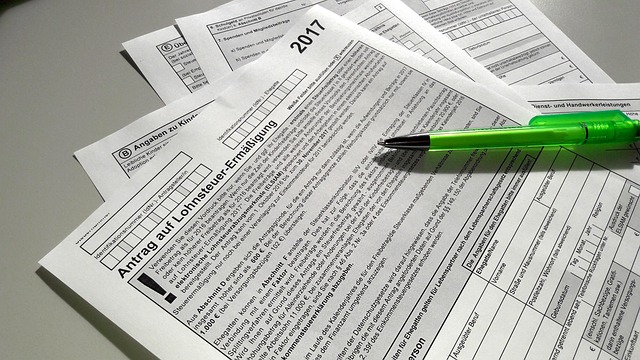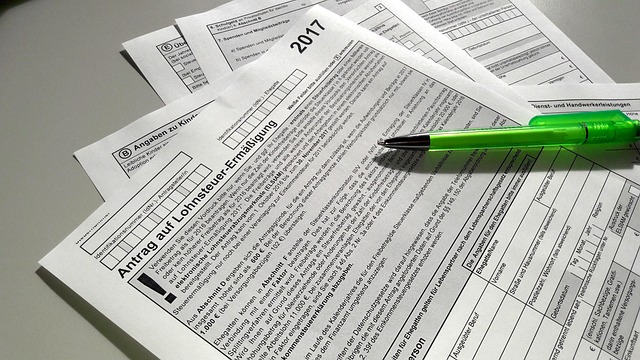Crypto Wallets: The Future of Secure Transactions in 2025
Author: Jameson Richman Expert
Published On: 2025-05-15
Prepared by Jameson Richman and our team of experts with over a decade of experience in cryptocurrency and digital asset analysis. Learn more about us.
In 2025, crypto wallets will play a crucial role in managing digital currencies and ensuring secure transactions. As the cryptocurrency market continues to evolve, understanding the different types of wallets and their functionalities is essential for both new and experienced investors. This article will delve deep into the various types of crypto wallets, their security features, and the best practices for using them effectively.
Crypto wallets are digital tools that allow users to store and manage their cryptocurrencies. They come in various forms, including software wallets, hardware wallets, and paper wallets. Each type of wallet offers unique features, catering to different user needs. For instance, software wallets are more convenient for frequent transactions, while hardware wallets provide enhanced security for long-term storage. The key to maximizing your crypto investment lies in choosing the right wallet for your specific requirements.

Understanding Crypto Wallets
A crypto wallet functions similarly to a bank account but for digital currencies. It stores your public and private keys, which are essential for sending and receiving cryptocurrencies. The public key is like your bank account number, while the private key is akin to your PIN. If someone has access to your private key, they can control your funds, making it vital to keep this information secure.
There are primarily two types of crypto wallets: hot wallets and cold wallets. Hot wallets are connected to the internet and are more convenient for quick transactions. Examples include mobile wallets and web wallets provided by exchanges like Binance or Bybit. On the other hand, cold wallets are offline storage solutions, making them less susceptible to hacks. Hardware wallets like Ledger and Trezor fall into this category.
Hot Wallets: Convenience Meets Risk
Hot wallets are ideal for active traders and individuals who frequently transact with cryptocurrencies. They allow for easy access and quick transactions but come with security risks. Since hot wallets are always connected to the internet, they are more vulnerable to cyber attacks. Therefore, it's crucial to choose a reputable wallet provider and implement additional security measures, such as two-factor authentication.
One popular hot wallet option is the Binance wallet, which is linked to the Binance exchange. This wallet allows users to trade cryptocurrencies seamlessly while providing a user-friendly interface. However, users should always remember the risks associated with storing large amounts of cryptocurrency in hot wallets. To mitigate these risks, it is advisable to only keep small amounts in hot wallets for daily transactions and transfer larger holdings to more secure storage options.
Cold Wallets: The Ultimate Security Solution
For those looking to hold their cryptocurrency long-term, cold wallets are the recommended choice. These wallets are not connected to the internet, significantly reducing the risk of hacks. Hardware wallets are the most popular type of cold wallet, and they come with various features to enhance security. For example, many hardware wallets allow users to create a recovery seed, which can be used to recover funds if the device is lost or damaged.
One of the leading hardware wallets is the Bybit wallet. It offers robust security features, including multi-signature authentication and secure element technology, making it suitable for both novice and experienced crypto investors. By keeping your assets in a cold wallet, you can ensure that your investments are safe from online threats. Additionally, many hardware wallets support multiple cryptocurrencies, providing versatility for users with diverse portfolios.

Best Practices for Using Crypto Wallets
Regardless of the type of wallet you choose, implementing best practices is vital to protect your assets. Here are some essential tips:
- Use Strong Passwords: Ensure your wallet is protected by a strong, unique password. Avoid using easily guessable information and consider using a password manager.
- Enable Two-Factor Authentication: Always enable 2FA for an extra layer of security. This additional verification step significantly reduces the chances of unauthorized access.
- Regularly Update Software: Keep your wallet software up to date to protect against vulnerabilities. Developers frequently release updates to address security issues and improve functionality.
- Backup Your Wallet: Regularly backup your wallet and store the backup securely. Consider using multiple backup methods, such as encrypted cloud storage and physical copies stored in safe places.
- Beware of Phishing Scams: Always verify the authenticity of websites and communications. Use bookmarks for important sites and be cautious with unsolicited emails or messages.
- Limit Exposure: Avoid sharing your wallet address or private keys with others. The less exposure your wallet has, the lower the risk of being targeted.
The Future of Crypto Wallets in 2025
As we approach 2025, the landscape of cryptocurrency wallets is expected to change significantly. With the advancement of technology, we can anticipate the development of more secure and user-friendly wallets. Innovations such as biometric authentication, which may include fingerprint or facial recognition, and integration with decentralized finance (DeFi) platforms will likely become commonplace. Furthermore, as regulations around cryptocurrencies evolve, users can expect greater transparency and security in wallet services, making it easier for the average user to navigate the crypto space.
The rise of DeFi has already started to influence how wallets are designed. Many wallets will incorporate features that allow users to earn interest on their holdings or participate in staking directly from the wallet interface. This shift towards multifunctionality will provide users with more options and potential for profit. For instance, users may be able to swap tokens, provide liquidity, and manage yield farming directly from their wallets without needing to interact with multiple platforms.
Additionally, the growing trend of non-fungible tokens (NFTs) will also impact wallet development. Wallets will need to adapt to store and manage these unique digital assets, further increasing their utility. Expect to see features that allow for easier NFT management, including viewing, transferring, and even minting NFTs directly from the wallet.
Conclusion
In summary, crypto wallets are an integral part of the cryptocurrency ecosystem. As we move toward 2025, understanding how to effectively use and secure these wallets will be essential for anyone looking to invest in digital currencies. By following best practices and staying informed about new developments, you can ensure that your crypto assets are safe and accessible. For those interested in exploring automated trading solutions, you can learn more about auto-trade bots on Binance here, or unlock crypto trading secrets here. Additionally, you might find insights into the rise of crypto trading robots here and top crypto secrets to profit in 2025 here.

Additional Resources
For further understanding of crypto wallets and how to maximize their benefits, consider the following resources:
- Coinbase: What is a Crypto Wallet? - An introductory guide to understanding crypto wallets.
- Investopedia: Hardware Wallets Explained - A comprehensive look into hardware wallets and their features.
- Ledger Live: Your Crypto Wallet - A software platform for managing your Ledger hardware wallet.
- CoinDesk: Hot and Cold Wallets - An article discussing the differences between hot and cold wallets.
Engaging with the Community
Joining online forums and communities dedicated to cryptocurrency can also provide valuable insights and peer support. Consider participating in:
- Reddit's CryptoCurrency Subreddit - A community for sharing news, tips, and questions about cryptocurrencies.
- BitcoinTalk Forum - One of the oldest forums for discussing Bitcoin and cryptocurrency-related topics.
- Crypto Discord Communities - Engage with others in real-time discussions about crypto trading and wallets.
Final Thoughts
As cryptocurrency adoption continues to grow, the importance of understanding and utilizing crypto wallets cannot be overstated. Whether you're a casual investor or a serious trader, knowing how to secure and manage your assets will be key to navigating the evolving landscape of digital finance. Stay informed, practice safe habits, and embrace the future of transactions in the world of cryptocurrency.

Emerging Trends in Crypto Wallets
As we look toward the future, it's crucial to stay aware of emerging trends in the crypto wallet space. Here are several trends that are likely to shape the future of crypto wallets:
- Integration with Traditional Banking: The gap between traditional banking and cryptocurrency is narrowing. Expect to see more wallets offering seamless integration with traditional bank accounts, allowing users to easily convert fiat currencies to crypto and vice versa.
- Enhanced Privacy Features: As privacy becomes a bigger concern among crypto users, wallets are likely to implement features that enhance user anonymity, such as stealth addresses and coin mixing services.
- Multi-Chain Support: With the growth of different blockchain ecosystems, wallets will increasingly support multiple chains, enabling users to manage diverse assets across various networks from a single interface.
- Decentralized Wallets: The rise of decentralized finance (DeFi) will drive the popularity of decentralized wallets that give users full control over their private keys and funds without relying on third-party services.
Understanding these trends can help investors and users make informed decisions about their crypto wallets and investment strategies moving forward.